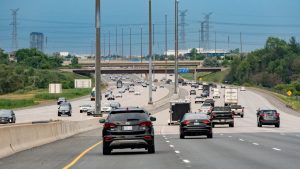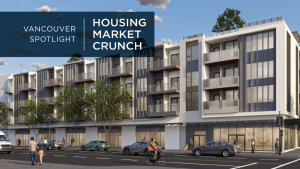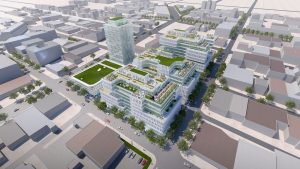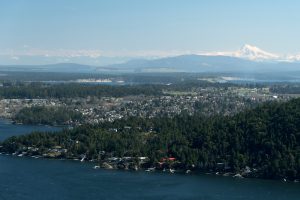COVID-19 is changing everything, and the urban landscape may be next.
While the coronavirus pandemic has forced sweeping changes upon both the construction industry and society at large, it’s what comes afterward that interests University of British Columbia School of Architecture and Landscape Architecture professor Patrick Condon.
“It’s more of a hope than a prediction, but I hope the pandemic will change the way of thinking regarding where people live and where they work,” Condon said.
The current need to work from home may also cause companies to re-evaluate their long-term needs for office space, he said.
“There’s a trend underway towards corporations and governments loosening up about showing up at 9 a.m. and leaving at 5 p.m. There’s resistance, but this case might be where the dam breaks and they throw up their hands and find another way to monitor whether people are working,” Condon said.
“I see (this trend) coming in a bigger way since over 50 per cent of people working Canada are tied to laptops so really there’s no reason to have an office to travel to anymore,” he said.
Building design may change because “If people don’t travel to some central location anymore, and we already see this, you may have to rethink what a home is over time. Maybe homes are sold with spaces specifically thought of as a home office dedicated to work,” he added.
While social isolation has forced everyone into their homes and social distancing has pushed them apart, Condon said he “didn’t think they jury is in just yet” on the densification trend taking place in many metropolitan areas.
“We’ll see how it plays out, and we’ll see if what’s happening in New York City is blamed on density,” he said. “Bigger units of living aren’t necessarily disadvantageous.”
“There are so many advantages to density from a sustainability perspective that it would be horrible if that was the lesson drawn from all this by the general public,” Condon added.
The future of public transit is also in question, with drastically reduced service and ridership in the wake of the pandemic.
“To the extent that people are afraid of being in the same place, transit has that problem. That will engender that fear until this is over. That’s the downside, but people will also be comfortable to work from home more often,” he said.
“I would hope the upside of the pandemic is that we travel less and people live close to work so regional (transport infrastructure) strains are lessened whether its transit or vehicles. The more we can reduce that, the better off we’ll be,” Condon said.
In-person conference attendance will likely also decline as people move online to meet for business, Condon said.
“We’re already seeing conferences going online and there was a lot of discussion about that before this happened. It doesn’t make sense due to a huge carbon footprint, but there also might be downsides to that because the airline industry is already teetering,” he said.
The pandemic’s far-reaching effects on society may even affect the affordability crisis, Condon said.
“It’s much more healthy and efficient if people can live close to where they work, in particular in Vancouver and Toronto where they’re priced out (of the housing market),” he added.
“The high end of the market has seen the most energy over the past 20 to 30 years, and builders don’t really have an option but to build what the market can afford. That leaves the middle and low-end (of the market) not well served,” Condon said.
“I hope this crisis will impel people to look more closely at affordability. I think that’s the most important thing to come out of this horrible, horrible time,” he said.











Recent Comments
comments for this post are closed